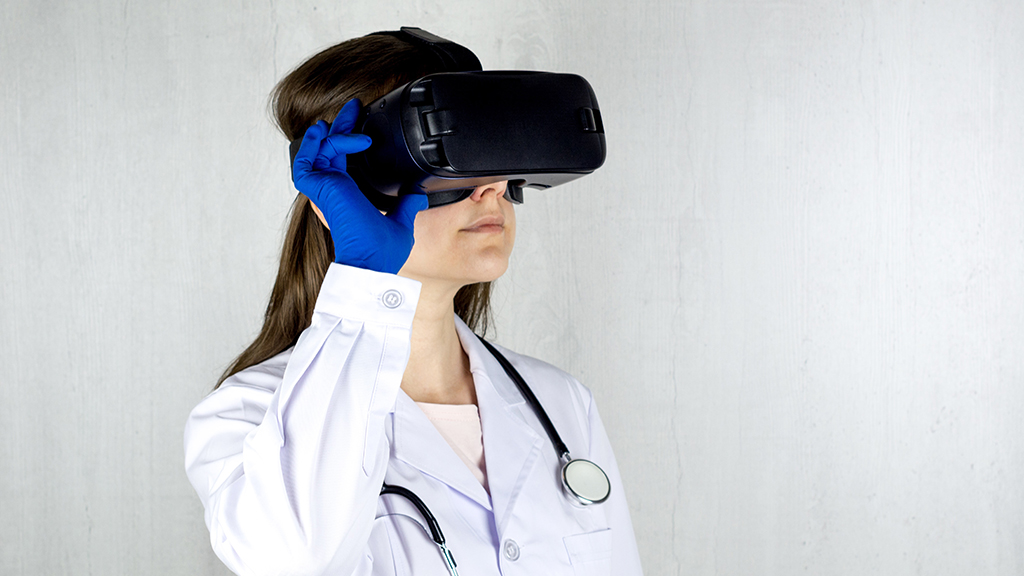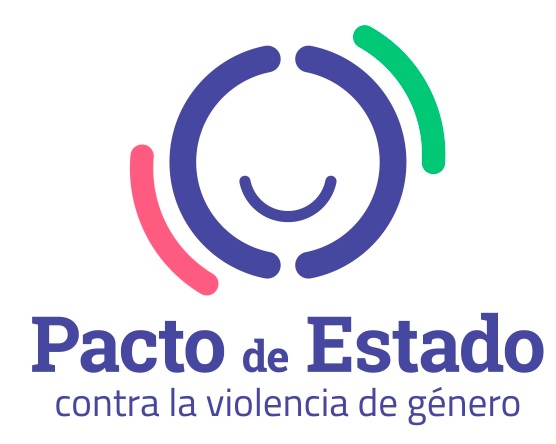Teaching with virtual reality can increase knowledge retention fourfold and halve learning times
Immersive technology projects provide students with 360° experiences where they can interact with real charactersVirtual reality allows a new type of learning which works on social and emotional as well as cognitive knowledge

Learning in an environment where everything looks real, but where you can make mistakes without suffering the consequences: this is one of the main advantages of virtual reality. The technology immerses students in spaces with 360° views and surround sound. Interest in using it for health sciences has gone through the roof during the pandemic. Two new projects developed by a pioneering European company in learning through 360° interactive video, Universitat Oberta de Catalunya (UOC) spin-off Immersium Studio, form part of this trend. These projects are designed to work on patient care skills, and to teach people to be able to recognize and manage gender-based violence.
Learning to address male violence against women
In INDOVIG, with funding from the National Gender Violence Pact and the participation of the Pompeu Fabra University, Hospital de Sant Joan de Déu and the University of Vic, students on medicine, nursing, physiotherapy, occupational therapy and social integration programmes will enter an immersive simulation where they will encounter victims of gender-based violence, like those they could see in their practices. The participants will find situations in which they have to detect and work on cases with activities and tests that they will have to confront, make decisions and receive feedback on them.
"The great advantage is that the student won't receive this information passively, but rather as an active subject who makes decisions", explained Immersium Studio's co-founder and CEO, Luis Villarejo. "This allows them to try out alternatives and learn from mistakes which they'll be able to avoid later on in their professional life. And they might see that they need to change their tone of voice, or tackle the issue in a different way, without this having further consequences or affecting any real patient".
Virtual reality to train healthcare staff
Immersium Studio has four recent success stories in immersive experiences for health sciences: C19-Space, ITSHEC, Family Approach and TPM Journey. The first of these, in collaboration with the European Association of Intensive Care Medicine and the European Commission, helped 20,000 European healthcare workers to train to work in ICUs if needed due to the pandemic. ITSHEC is a European project, funded by the Erasmus+ programme, to promote transferable skills, such as learning to learn or critical thinking, in health sciences studies using virtual reality. And Family Approach and TPM Journey, with the DTI Foundation, have helped professionals learn about consent for donation and how to give bad news, as well as become familiar with the Spanish donation and transplantation system.
Learning with virtual reality is as close to reality as possible and provides a degree of experience which offers great benefits: it develops empathy and emotional intelligence by putting the users in different roles, it improves knowledge retention, allows a uniform teaching approach with similar activities for everyone, and reduces logistics and costs as it doesn't depend on actors or dates, as occurs with traditional role-play training.
"The improvements can be very significant when the projects are well designed. The retention capacity can increase up to fourfold and the training time can be halved", explained the CEO and computer science engineer, who has a master's degree in Natural Language Processing.
Accessible technology, useful for different fields
The ease of using this method, for which you only need 3D glasses and a mobile phone, has increased interest in this type of teaching during the pandemic, above all in health sciences. This type of learning has, however, been shown to be very useful in other fields. Not only to acquire the so-called soft skills, such as communication, conflict resolution or social and emotional intelligence, but also for hard skills.
In areas such as health and safety it can help to recognize and resolve conflicts. In staff selection processes it is used to carry out real tests on the candidates. And when training in more specific skills, as demonstrated in a study by Johnson & Johnson and the Imperial College, in which a team of surgeons achieved much greater autonomy than those who did not receive this type of education, it can provide new educational opportunities.
"Learning with virtual reality allows you to work on both the cognitive part, and on emotions and experiences", concluded Villarejo. "It can therefore represent an excellent complement which can enrich and improve traditional education".
TPM Journey VR and Family Approach VR are co-designed and developed by Immersium Studio and the Donation & Transplantation Institute (TMP-DTI).


INDOVIG is a cooperation project between Pompeu Fabra University, the University of Vic - Central University of Catalonia and Immersium Studio; it is funded by the Pacto de Estado contra la Violencia de Género.
C19-Space is funded by the European Commission, and co-designed by Immersium Studio and the European Society of Intensive Care Medicine (ESICM).

ITSHEC is funded by the Erasmus+ programme of the European Union; it is a cooperation project between Croatia's University of Split, Finland's Metropolia University of Applied Sciences, and Spain's Pompeu Fabra University and Consorci MAR Parc Salut de Barcelona
Immersium Studio receives funding from Invergy, a UOC company, to invest in projects from the educational and ICT sector linked to its ecosystem and spheres of knowledge. It is also supported by the UOC –through the entrepreneurship platform Hubbik– and has been funded by ENISA, a public company attached to the Ministry of Industry, Trade and Tourism, devoted to funding viable and innovative business projects of SMEs through loans.
UOC R&I
The UOC's research and innovation (R&I) is helping overcome pressing challenges faced by global societies in the 21st century, by studying interactions between technology and human & social sciences with a specific focus on the network society, e-learning and e-health. Over 500 researchers and 51 research groups work among the University's seven faculties and two research centres: the Internet Interdisciplinary Institute (IN3) and the eHealth Center (eHC).
The United Nations' 2030 Agenda for Sustainable Development and open knowledge serve as strategic pillars for the UOC's teaching, research and innovation. More information: research.uoc.edu. #UOC25years
Experts UOC
Press contact
-
Editorial department
